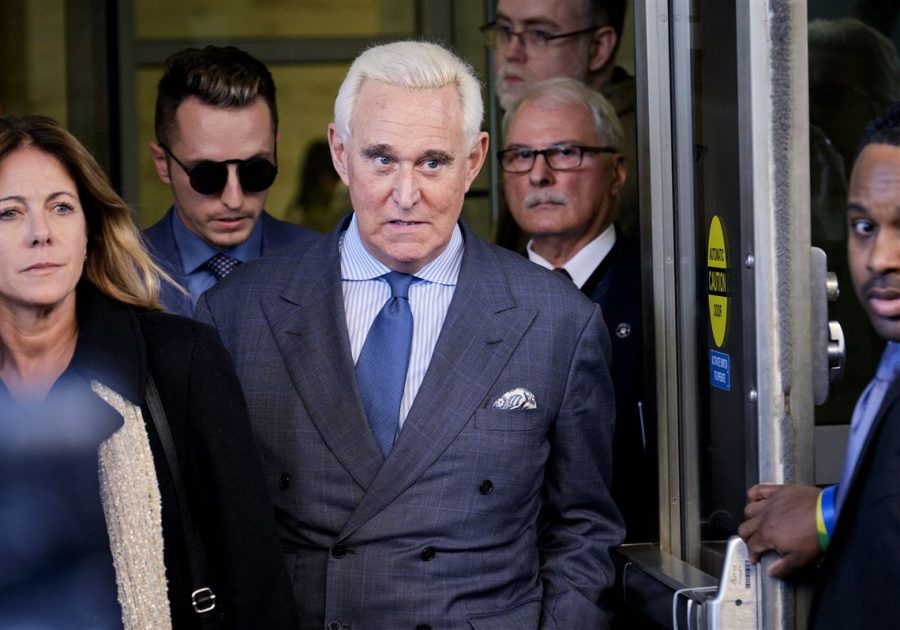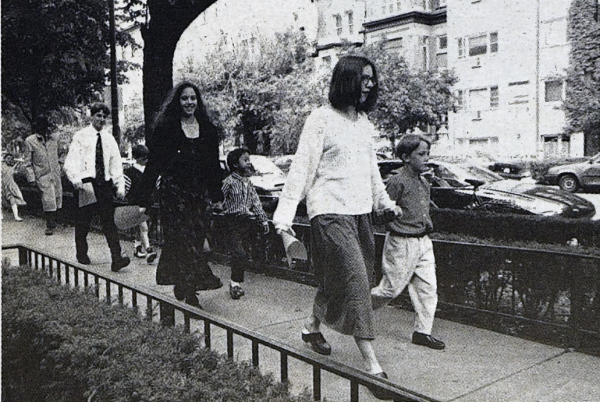Reduction of Roger Stone’s Sentence Sparks Deliberation
March 1, 2020
On January 25, 2019, Roger J. Stone’s home was raided by the FBI in the predawn hours of what would turn out to be a difficult day for the self-proclaimed “dirty trickster,” who worked as a political consultant on U.S. President Donald J. Trump’s 2016 Presidential Campaign. On that day, Stone was arrested outside of his Florida home on the basis of a seven-count indictment alleging he obstructed an official judicial proceeding, tampered with witnesses of an ongoing investigation, and lied to investigators multiple times during the days of Special Counsel Robert S. Mueller’s investigation into Russian interference in the 2016 U.S. Presidential Election. The situation has been a topic of feverish discussion, lately, in the Latin community.
After nearly 13 months of jury decisions, legal battles, and media campaigns, Roger Stone’s prison sentence was decided… and decided… and decided again by a myriad of Washington elites. The first of which was United States Attorney General William P. Barr, who initially recommended a sentence of 87 to 108 months (about seven to nine years) in prison for the 67-year-old. This sentencing length aligns with legal guidelines for the sorts of crimes Stone was unanimously convicted of by a jury in 2019.
The seven-to-nine-year recommendation remained intact until the Attorney General acted on President Donald Trump’s tweet in reference to the case: “This is a horrible and very unfair situation. The real crimes were on the other side, as nothing happens to them. Cannot allow this miscarriage of justice!”
Trump’s outcry sent ripples through the legal community of Washington and placed Attorney General Barr in an awkward position, considering his job is to administer the objective rule of law but simultaneously act in subordination to his superior, the President.
Ultimately, Barr decided to adhere to the President’s indirect demands and shorten the length of the originally recommended sentence from 87-108 months to a notably-shorter 40 months, which infuriated thousands of DOJ Alumni prosecutors who publicly called for the Attorney General’s resignation.
Washington’s legal community and politically interested students at Latin have mixed feelings about Stone’s sentencing, Barr’s handling of the case, and Trump’s informal intervention in the revered judicial system of The United States.
With respect to Trump’s involvement in the case, sophomore Sam Gibson said: “The President should only interfere if he happens to know the person he is doing it to or if he is given national security intelligence the public is not allowed to be aware of”. Sam added: “The President should wisely use this platform because it can be easily abused as we’ve seen throughout history”.
Throughout his decades-long political career, Roger Stone has been viewed as a Nixon-loving, eccentric political consultant who craves attention and happens to be a longtime friend of President Trump.
Analysts suggest a pardon is an option for the President’s friend’s refreshed sentencing, although sophomore Joey Gorman said a president should not pardon a man based off of preconceived notions.
“I think that President Trump pardoning Roger Stone is very unprofessional on the president’s part. No one should pardon others based on personal connections; it seems like an unethical use of power on his part,” said Gorman.
While junior Brendan Meyers agrees with the sentiment of American law, he believes it could be perceived negatively in terms of optics. “I think he can do whatever he wants but it will obviously look bad on his front, especially when he represents the people of the U.S,” he said.
Meyers also feels “it is ironic to see a president promote or talk about keeping the foundations of democracy, and pursuit of American ideals, and yet he acts above the law and goes against the whole purpose of democratic justice”.
Stone’s sentencing, the issue of pardoning, and President Trump’s unceremonious intervention in the U.S. judicial system are all topics of immense deliberation at Latin. In the coming days, we will see whether or not the President will pardon Stone from prison and hear further reactions from pundits in the legal world.
No matter the given situation, it is imperative that the President acts in the most upright and lawful manner when dealing with the judicial system of America because, although it may have its flaws, American due process is one of the strongest facets of government today.





















































